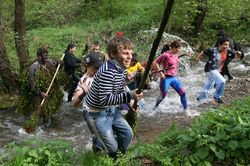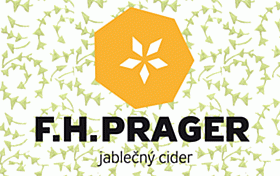ČR, 2013, 150 min
Katedra antropologie ZČU v Plzni
26.01.2013 11:00
Together with experts we will discuss the question of filmmaking in anthropology: What is ethnographic film? How can its ethnographicness be characterized? Is there any difference between ethnographic film and a video documentary from field research? What are the advantages and limits of ethnographic film in comparison with text as a standard medium of academic production?
International guests
Johannes Sjoberg, Granada center, University of Manchester, UK
Jaroslava Panáková, Comenius University, Bratislava, Slovakia
Sophie Wagner, festival Ethnocineca, University of Vienna, Austria
The language of communication is English.
UK, 2013, 45 min
Johannes Sjoberg
27.01.2013 11:00
Johannes Sjoberg will present ethnofiction which is used as a complementary approach to anthropological research and representation. Ethnographer´s informants improvise their cultural knowledge in front of camera, revealing aspects of culture that would be hard to uncover and represent with traditional anthropological research methods.
The language of communication is English.
Romania, 2012, 33 min
Mihai Andrei Leaha
26.01.2013 18:35
 The film is an attempt to question the ways in which the visual narrative is constructed when using the feedback method. The feedback provided by the people involved (the young performers but also the elders) in the Babaluda Feast, turned out to be very important in offering an insight to the ways in which the Feast was depicted by the visual ethnographer. By recoding the shared visual ethnography, that was arranged in big groups in a large screening rooms, but also in small groups in private houses, the film will try to experiment the ways in which the visual narrative is constructed by looking at, the looked at. The montage method of the film will use a chronotopic montage technique (Bakhtin), in which the time and space unity will be enacted in a visual ethnographic present.
The film is an attempt to question the ways in which the visual narrative is constructed when using the feedback method. The feedback provided by the people involved (the young performers but also the elders) in the Babaluda Feast, turned out to be very important in offering an insight to the ways in which the Feast was depicted by the visual ethnographer. By recoding the shared visual ethnography, that was arranged in big groups in a large screening rooms, but also in small groups in private houses, the film will try to experiment the ways in which the visual narrative is constructed by looking at, the looked at. The montage method of the film will use a chronotopic montage technique (Bakhtin), in which the time and space unity will be enacted in a visual ethnographic present.
Mihai Andrei Leaha is PhD Student in Philology. European Studies Faculty, “Babeş-Bolyai” University, Cluj-Napoca, Cluj, România. Thesis: Visual Ethnography. Restructuring Anthropological Knowledge. Video Researching Romanian Traditional Customs.
Director: Mihai Andrei Leaha
Producton: Triba Film
Language of dialogues: Romanian
Language of subtitles: English, Czech
Launching of film, awards:
The film won the Student award in Goettingen International Ethnographic Film Festival.
It also entered the official selection of Film festivals in Sofia (IFEF 2012), Athens (Ethno Fest 2012) and Ho Chi Minh City ( AnthroFilmFestival 2012)

 The film is an attempt to question the ways in which the visual narrative is constructed when using the feedback method. The feedback provided by the people involved (the young performers but also the elders) in the Babaluda Feast, turned out to be very important in offering an insight to the ways in which the Feast was depicted by the visual ethnographer. By recoding the shared visual ethnography, that was arranged in big groups in a large screening rooms, but also in small groups in private houses, the film will try to experiment the ways in which the visual narrative is constructed by looking at, the looked at. The montage method of the film will use a chronotopic montage technique (Bakhtin), in which the time and space unity will be enacted in a visual ethnographic present.
The film is an attempt to question the ways in which the visual narrative is constructed when using the feedback method. The feedback provided by the people involved (the young performers but also the elders) in the Babaluda Feast, turned out to be very important in offering an insight to the ways in which the Feast was depicted by the visual ethnographer. By recoding the shared visual ethnography, that was arranged in big groups in a large screening rooms, but also in small groups in private houses, the film will try to experiment the ways in which the visual narrative is constructed by looking at, the looked at. The montage method of the film will use a chronotopic montage technique (Bakhtin), in which the time and space unity will be enacted in a visual ethnographic present.


